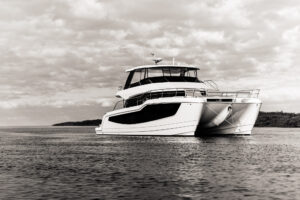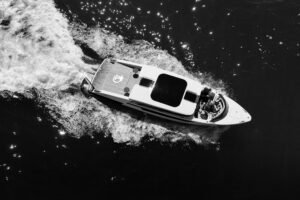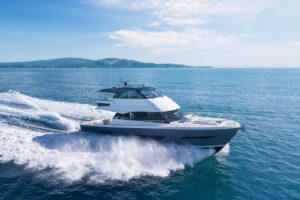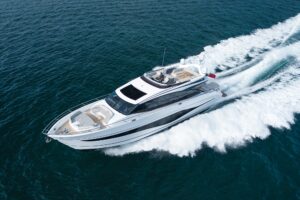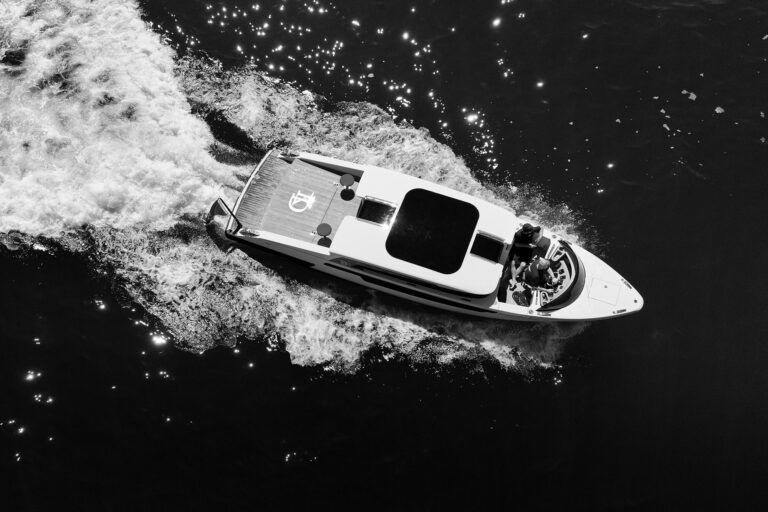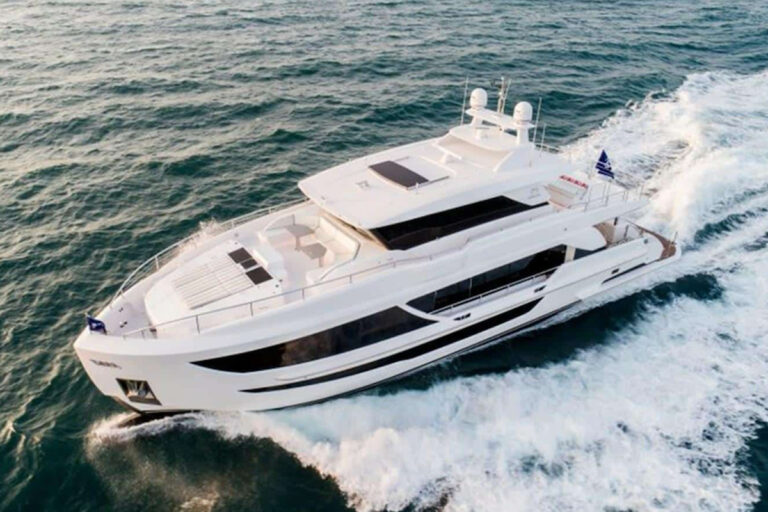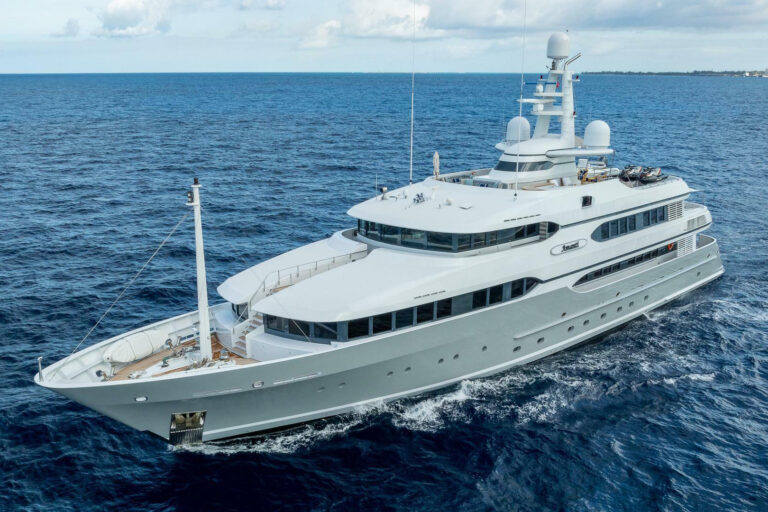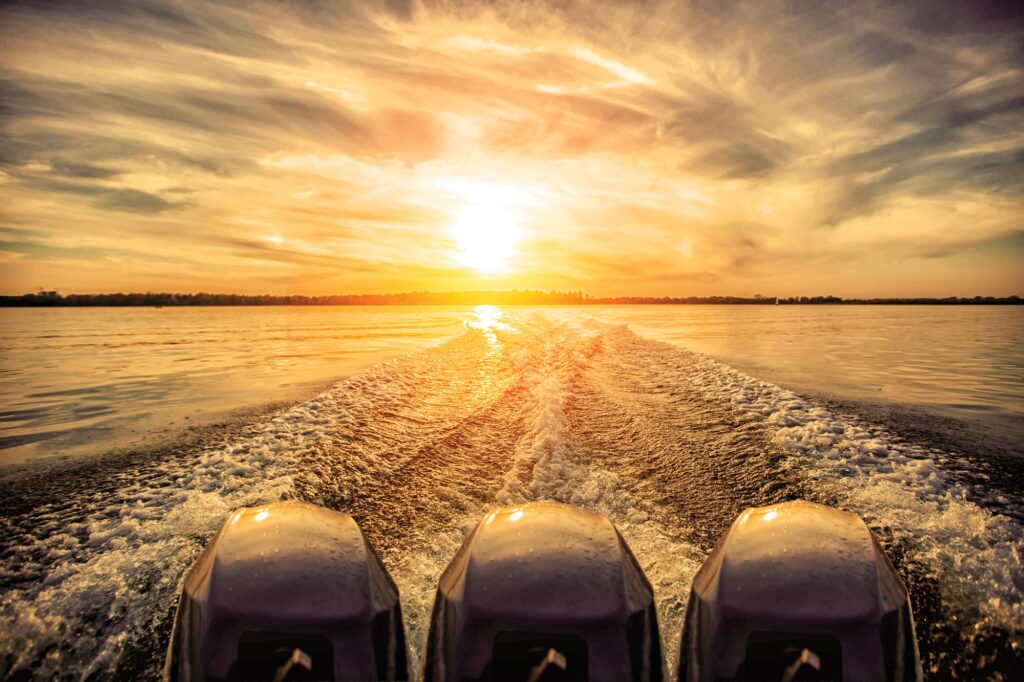
When it comes to insurance costs, boaters who fish offshore are learning that extra outboards feed into a stereotype.
“You’re expected to go fast and run the boat like an idiot,” says Tim Derrico, director of sales at HMY. “If you buy an upper-30- to 50-foot center-console fishing boat—especially the fishing boats, more than the cruising boats—they figure you’re going to run offshore and go fast to get where you want to go. You can get insurance, but it’s challenging.”
The difficulty with finding affordable policies has become so acute that insurers are now suggesting that some boat owners forgo windstorm coverage. The logic is that if the owner is well-off enough to pay cash for the boat, then he’s also in a position to self-insure and have a captain with a solid hurricane plan to get out of the way of storms.
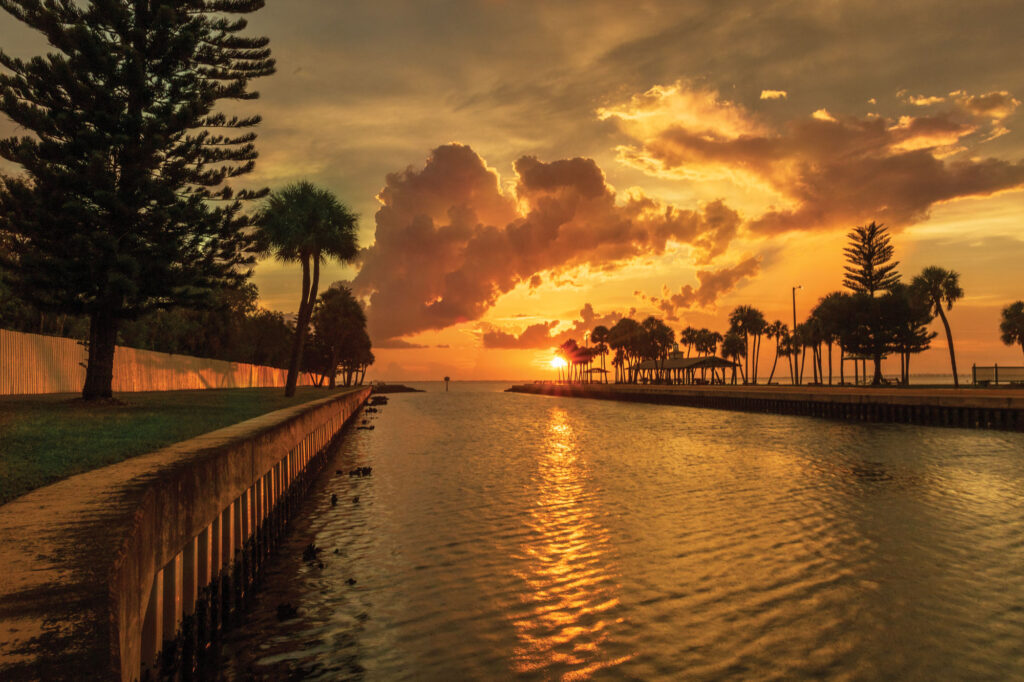
“You can cut your insurance in half,” Derrico says. “They’re going to require you to have a hurricane plan, so have that plan anyhow. Just make sure you can get the boat to a safe place where you’re not going to be subject to direct wind or storm surge. Worst case, maybe you get a little dock rash or break some antennas or bend your riggers.”
Other owners are reducing insurance costs by purchasing smaller boats, especially in areas where insurers see the most risk from big storms. “In Florida, for sure,” he says. “You can sell a 60-foot boat in Florida, and the insurance would cost you five times as much as the same boat in New York or Connecticut.”
Anyone shopping for a boat, Derrico adds, should look into insurance costs before anything else: “When you’re ready to buy another boat, on top of the list, the first thing you start dealing with should be insurance.”
Safe Space: How to Be Prepared
Insurers recommend that boat owners haul out their boats, if at all possible, ahead of an incoming storm. Of course, with a major storm, this means there’s usually a crush of people trying to get haulout services at the same time. The best-prepared boat owners prepay to reserve the service, or for a space at an upriver marina or canal considered a good hurricane hole. It’s important to do what the policy requires; insurers will hold a boat owner to a written hurricane plan.

